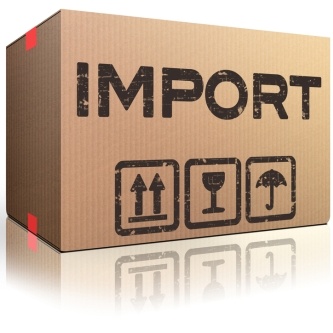 Editor’s Note: At BCR, we assist business customers as a customs broker and as customs consultants. Our in-house team of accredited customs brokers and consultants work every day to improve compliance and reduce duty for our customers.
Editor’s Note: At BCR, we assist business customers as a customs broker and as customs consultants. Our in-house team of accredited customs brokers and consultants work every day to improve compliance and reduce duty for our customers.
At times though, a customs broker may add in the expertise from other service providers such as specialised lawyers to ensure that our customers are receiving what they need. We are fortunate at BCR to have business relationships with many specialised experts that can add value to the work we do, and one of these experts has provided today’s guest blog.
Russell Wiese is a partner at Hunt & Hunt Lawyers within their dedicated Customs and Global Trade team and he specialises in assisting importers and exporters with the various legal issues associated with international trade. In today’s post Mr. Wiese provides information for multinational companies on how to best approach the difficult relationship between Customs valuation and transfer pricing.
The value of transactions between related parties can have both income tax and customs duty ramifications. For these reasons both income tax and customs administrations have rules in place to ensure arm's length pricing. The difficulty for business is that the two sets of rules are not in harmony.
What is the issue?
Transfer pricing refers to the setting of prices of transactions between related parties. The concern of the Australian Taxation Office (ATO) is that prices of imported goods will be set too high resulting in lower Australian profits and taxable income. In assessing whether transactions are appropriately priced, the most common transfer pricing method focuses on the annual profits of the Australian entity.
The concern of customs authorities is that the price of imported goods will be set too low, reducing the duty payable. Customs valuation focuses on the price payable for each individual consignment and tests whether the relationship between the parties has influenced the price of the goods.
Two different values for the same goods
The ATO and customs valuation methods are theoretically and practically different. This means that for most related parties there will not be automatic alignment of customs and transfer pricing values.The practical end result is that the ATO may value your goods one way and the Australian Border Force (ABF) another.
As a result of Australia's low duty rates, transfer pricing policies will take priority over customs valuation issues. This does not mean that customs issues should be ignored. Importers should consider seeking a valuation ruling from the ABF which sets out the circumstances under which the ABF will treat the transfer price as the customs value.
The values are aligned – now what?
The ABF is a world leader in finding opportunities for convergence between the two valuations methods and will often provide rulings accepting the transfer price as the customs value. However, this brings its own issue. What happens to the customs value if you adjust the transfer price? This often happens at the end of a financial year when it can be seen that the Australian importer will not meet its transfer pricing profit target. The offshore parent company may issue an invoice or credit note altering the price paid for goods and the Australian profit.
This adjustment to the cost of goods may have customs implications. If the adjustment is downward (to increase profits) there is a customs refund opportunity. Conversely, if profits are too high and the cost of goods is increased, there may be a potential duty liability. In either case, if the transfer price is used as the customs value, the adjustments should be disclosed to the ABF.
Recommendation
The customs issues associated with transfer pricing need to be proactively managed. The ABF is progressive in its approach to the issues and appreciates the difficult position of multinationals facing inconsistent tax regimes. However, it is less generous when the issue is identified in the context of a customs audit.


